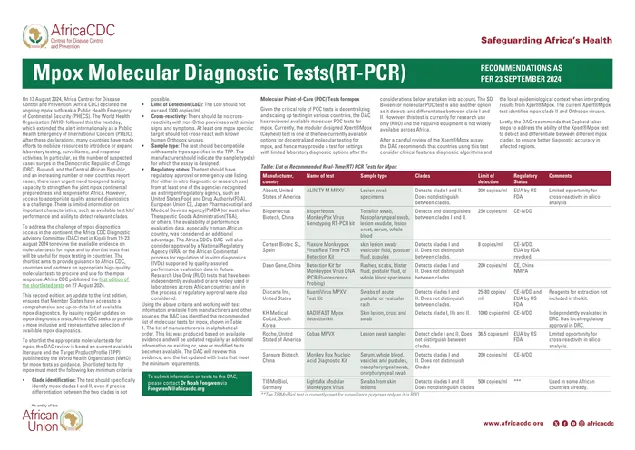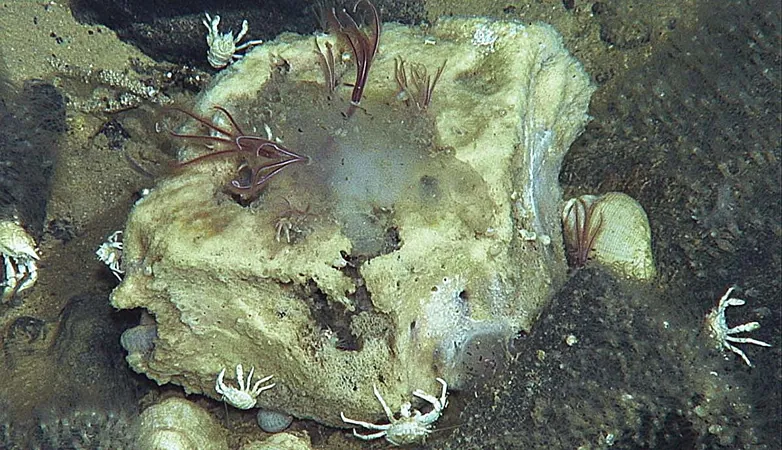
Urgent Response to Mpox Outbreak: African and Global Health Authorities Mobilize for Improved Diagnostics
2024-09-25
Author: Siti
Urgent Response to Mpox Outbreak: African and Global Health Authorities Mobilize for Improved Diagnostics
In a significant move signaling heightened concern over the mpox epidemic, the Africa Centres for Disease Control and Prevention (Africa CDC) declared the ongoing outbreak as a Public Health Emergency of Continental Security (PHECS) on August 13, 2024. Just a day later, the World Health Organization (WHO) echoed this alarm by categorizing the outbreak as a Public Health Emergency of International Concern (PHEIC), compelling nations worldwide to take significant action.
As suspected cases rise sharply, particularly in the Democratic Republic of Congo (DRC), Burundi, and the Central African Republic, the urgency for enhanced laboratory testing and surveillance has never been greater. Many countries are actively mobilizing resources to not only introduce but also expand their capabilities in mpox testing and response efforts. However, challenges remain. Access to quality-assured diagnostic tools is hindered, leaving healthcare providers struggling to find reliable testing kits that can accurately detect various mpox clades.
Recognizing the critical gap in diagnostic resources, the Africa CDC’s Diagnostic Advisory Committee (DAC) convened in Kigali from August 19-23, 2024. Their mission? To evaluate the current landscape of molecular tests available for mpox and compile a list of the most effective options. This shortlist aims to guide countries in Africa and their partners in procuring high-quality diagnostic tests essential for combating the mpox outbreak.
The guidelines from the DAC were officially released in the first edition of the shortlisted tests on August 27, 2024. This initiative marks a pivotal step towards bolstering Africa’s preparedness and response infrastructure amidst the current health crisis.
The global community watches closely as African nations take action against this outbreak, reminding us all of the importance of swift and coordinated health responses in the face of emerging infectious diseases. Will this concerted effort turn the tide in the fight against mpox? Time will tell, but the collective resolve to share knowledge and resources provides a glimmer of hope in these challenging times.

 Brasil (PT)
Brasil (PT)
 Canada (EN)
Canada (EN)
 Chile (ES)
Chile (ES)
 Česko (CS)
Česko (CS)
 대한민국 (KO)
대한민국 (KO)
 España (ES)
España (ES)
 France (FR)
France (FR)
 Hong Kong (EN)
Hong Kong (EN)
 Italia (IT)
Italia (IT)
 日本 (JA)
日本 (JA)
 Magyarország (HU)
Magyarország (HU)
 Norge (NO)
Norge (NO)
 Polska (PL)
Polska (PL)
 Schweiz (DE)
Schweiz (DE)
 Singapore (EN)
Singapore (EN)
 Sverige (SV)
Sverige (SV)
 Suomi (FI)
Suomi (FI)
 Türkiye (TR)
Türkiye (TR)
 الإمارات العربية المتحدة (AR)
الإمارات العربية المتحدة (AR)